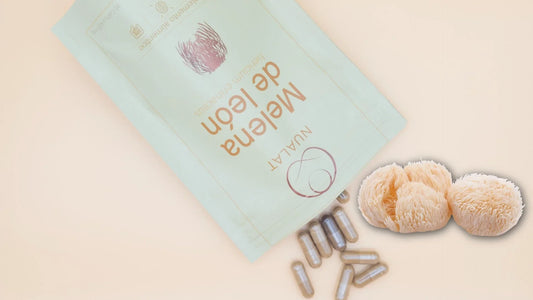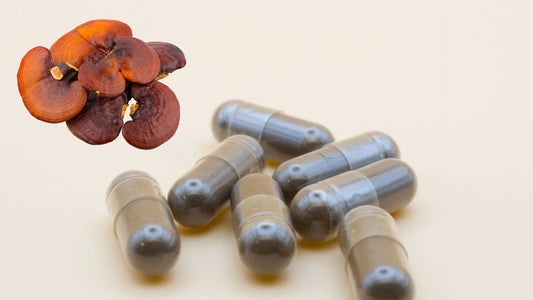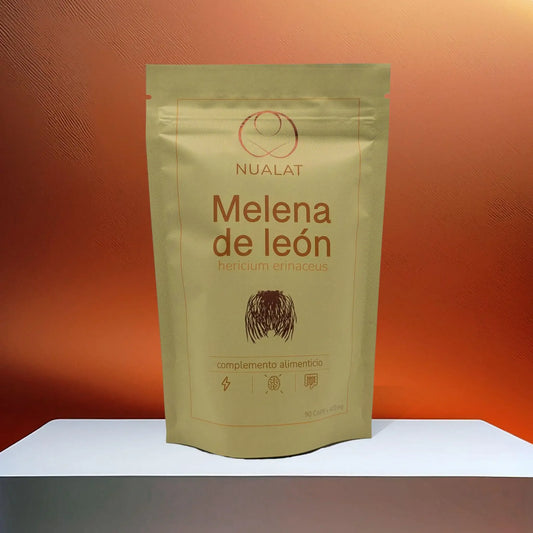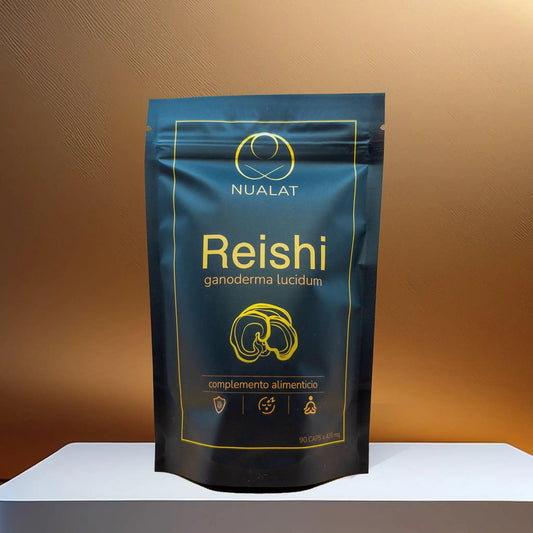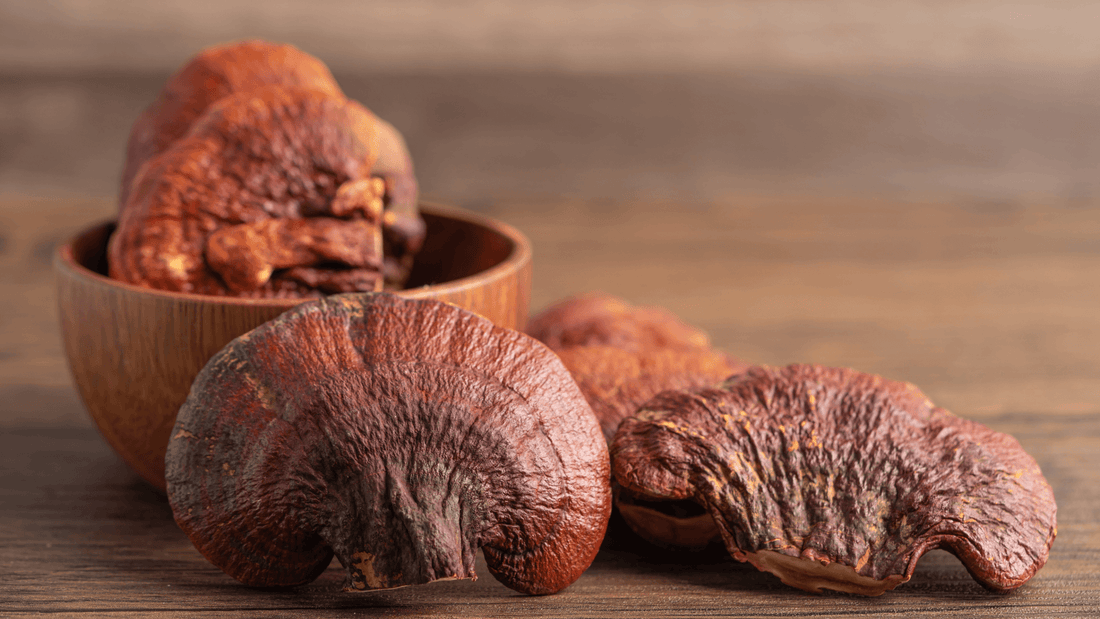
Ganoderma Lucidum (Reishi): Properties and health applications
Share
Ganoderma lucidum , better known as Reishi , is an ancient medicinal mushroom that has earned the nickname "The Mushroom of Immortality" in traditional Chinese medicine. Its therapeutic applications range from boosting the immune system to its complementary use in chronic and degenerative diseases. This article delves into the scientific properties of Reishi, the bioactive molecules that make it unique, and its impact on various diseases.
Bioactive compounds: The key to Ganoderma lucidum
Reishi owes its extensive benefits to its complex chemical composition, which includes:
- Polysaccharides : They modulate the immune system, stimulate NK cell activity, and have antitumor properties. In a study published in the International Journal of Biological Macromolecules (2021), Ganoderma polysaccharides demonstrated immunostimulating effects in patients with compromised immune systems.
- Triterpenoids : These compounds have anti-inflammatory and antioxidant properties, reducing cellular damage associated with oxidative stress and chronic diseases such as diabetes and arthritis.
- Ganoderic acids : With hepatoprotective properties, they help detoxify the liver and improve its overall functioning.
- Bioactive phenols and peptides : They support metabolic regulation and have cardioprotective effects.
Therapeutic properties of Reishi backed by science
The use of Ganoderma lucidum goes beyond tradition. Modern research has confirmed many of the properties attributed to this mushroom, positioning it as a valuable tool in the prevention and complementary treatment of various diseases.
1. Strengthening the immune system
Reishi is known for its ability to regulate the immune system. Ganoderma polysaccharides activate T and NK cells, which are essential for fighting viral and bacterial infections and certain types of cancer. In immunosuppressed patients, such as those undergoing chemotherapy, reishi may reduce the incidence of recurrent infections and improve quality of life. In Cancer Immunology, Immunotherapy (2020), reishi extract was shown to enhance immune activity in cancer patients.
2. Stress and anxiety control
Chronic stress can have a devastating impact on physical and mental health. Reishi acts as an adaptogen, helping the body manage stress and regulate the hypothalamic-pituitary-adrenal (HPA) axis. According to a study in Frontiers in Pharmacology (2018), consumption of reishi triterpenoids significantly reduced cortisol levels in participants under sustained stress.
3. Cardiovascular diseases
Ganoderma lucidum has shown efficacy in reducing LDL cholesterol, improving blood pressure, and preventing plaque formation in the arteries. These properties make it an ally for patients with hypertension, arteriosclerosis, and a risk of cardiovascular disease. In the Journal of Cardiology (2019), a clinical trial showed that supplementation with Reishi extract improved lipid profiles in patients with hypercholesterolemia.
4. Support in inflammatory diseases
Chronic inflammation is implicated in diseases such as arthritis, ulcerative colitis, and metabolic syndrome. Ganoderma triterpenoids inhibit the production of proinflammatory cytokines, alleviating symptoms and reducing long-term damage. A study published in Molecules (2021) found that extracts of the mushroom have anti-inflammatory effects comparable to commonly used medications, without the associated side effects.
5. Antitumor properties
Preclinical studies have shown that Reishi polysaccharides can induce apoptosis in cancer cells and slow their growth. Although it does not replace conventional treatments, Ganoderma lucidum can act as a complement to improve treatment response and quality of life. In PLoS One (2020), it was observed that breast cancer patients who consumed Reishi extract reported fewer side effects from chemotherapy and improved overall health.
6. Liver diseases
Ganoderma lucidum has a long history as a hepatoprotector. Its ganoderic acids support liver detoxification and help regenerate damaged liver cells. This makes it useful for conditions such as viral hepatitis, non-alcoholic fatty liver disease, and cirrhosis.
7. Diabetes and metabolic syndrome
Reishi helps regulate blood glucose levels and improves insulin sensitivity. In a clinical trial published in Diabetes Research and Clinical Practice (2019), diabetic patients who supplemented with Ganoderma extract experienced significant improvements in their glycated hemoglobin levels and overall disease control.
Who is Reishi suitable for?
Ganoderma lucidum is an ideal choice for people looking to strengthen their immune system, manage stress, prevent chronic diseases, or complement their current treatments. Its applications range from relieving everyday stress to supporting serious illnesses such as cancer and diabetes. It is also especially useful during times of increased physical or emotional stress, such as winter, when the immune system is more compromised.

The future of Reishi
Reishi continues to be the subject of intensive research worldwide, and its versatility and safety make it a promising option in both traditional and modern medicine.
This mushroom is not just a symbol of Eastern medicine; it's a bridge between ancient knowledge and scientific innovation. Its potential continues to expand, offering new hope for holistic and sustainable health. We encourage you to try it and let us know how it works for you.


